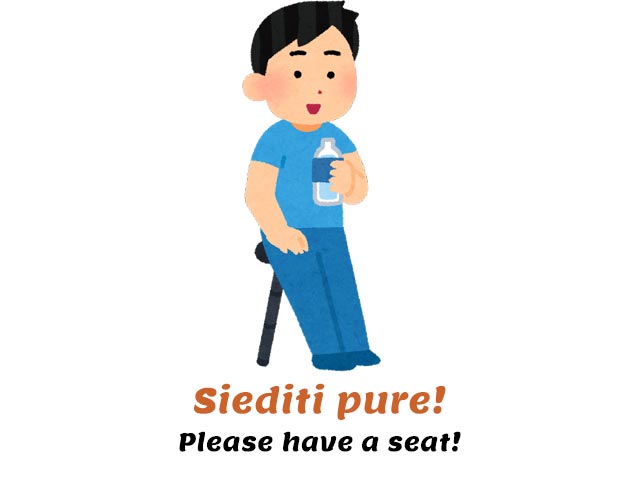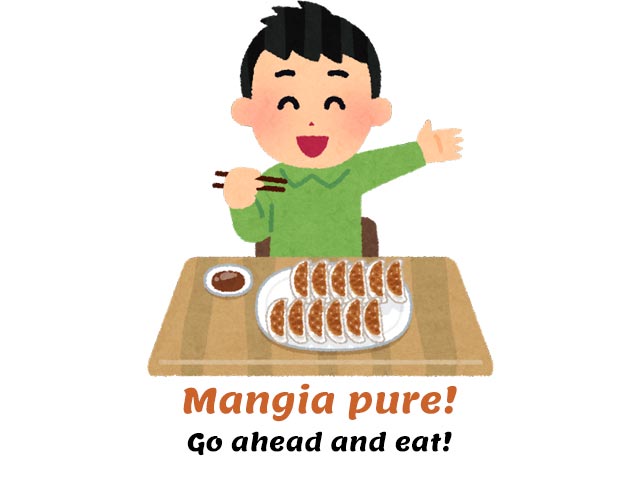Italian word of the day
| Pronunciation | |
| English translation | Even, also, go ahead |
Pure is both a conjunction and an adverb used in colloquial Italian and that can be translated into English as “even”, “also”, “go ahead”. It doesn’t really have a direct equivalent in English because it has many different meanings.
Examples
| Andrea non parla solo l’inglese, ma pure il francese. | Andrea not only speaks English, but also French. |
| Tom era alla festa. C’eri pure tu? | Tom was at the party. Were you there, too? |
| Siamo pure andati al museo di storia naturale. | We even went to the natural history museum. |
| Siediti pure! | Please have a seat! |

Using pure in Italian
We’ve said that pure in Italian is an adverb and a conjunction that translates English expressions such as “of course” and “as well…” or “even if”, among others.
The most common meaning is “also” or “even”.
| Pure a me piace giocare a tennis. | I like to play tennis, too. |
| Giorgio si è pure rotto la caviglia. | Giorgio also broke his ankle. |
| Pretende pure di essere servito per primo? | Does he even demand to be served first? |
The word pure in Italian is also used to translate “please, go ahead”. Pure is used with a verb conjugated in the imperative mood, so the order sounds less harsh and more friendly. It can be used in formal and informal situations.
| Entri pure e si accomodi su una poltrona. | Please go ahead and take a seat in an armchair. |
| Di cosa hai bisogno? Dimmi pure. | What do you need? Go ahead and tell me. |
| Mangia pure, io arrivo fra poco. | Go ahead and eat, I’ll be there in a little while. |

Pure… or puré?
Make sure you don’t confuse pure with puré, with an accent mark. The first is an adverb and a conjunction, while the second translates into English as mashed potatoes. The pronunciation is also different.
| Puré di patate | Mashed potatoes |
More free Italian resources
You might want to keep learning Italian online with these free Italian resources:
❤️ If you liked this lesson on how to use pure in Italian, share it with your friends!


